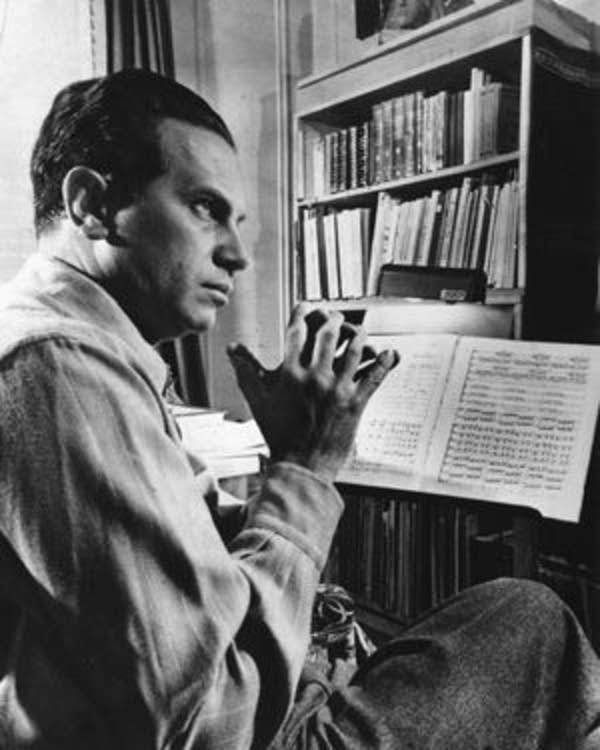Dorati's recordings put the Minneapolis Symphony on the map
Go Deeper.
Create an account or log in to save stories.
Like this?
Thanks for liking this story! We have added it to a list of your favorite stories.

Minnesota Orchestra musicians who played under Antal Dorati remember the Hungarian-born music director as a charismatic conductor with a fiery temper.
Trumpeter Ron Hasselmann was in his early 20s in 1958, when he joined what was then known as the Minneapolis Symphony. He was terrified of making a mistake and becoming the object of Dorati's anger. That's just what happened in his first season with the orchestra when he missed some important notes during a concert.
"Dorati looked at me and it was like he grew six feet," Hasselmann says. "His hair flew out and it looked like his teeth grew six inches and he conducted the rest of the piece with his fist, glaring at me. That put great fear into me and I was devastated."
Hasselmann kept a punching bag in his basement to ease the stress of playing under Dorati, but the retired trumpeter says he had great respect for the conductor and believes Dorati helped him grow as a musician.
Turn Up Your Support
MPR News helps you turn down the noise and build shared understanding. Turn up your support for this public resource and keep trusted journalism accessible to all.

Dorati had a reputation as an orchestra builder and that was one of the reasons the Minneapolis Symphony hired him in 1949. But it wasn't his only skill.
"He was a good businessman and he was enterprising," says the orchestra's historian Mary Ann Feldman.
One of Dorati's most enterprising moves was landing a recording contract with the Mercury label.
"Dorati did much to make this a very famous orchestra," says Feldman. "He got this recording contract with Mercury at the dawn, the heyday of the LP age and made all of these recordings--not the least of which was the '1812' Overture."
When that recording came out in 1958, the Minneapolis Symphony had enjoyed six years as Mercury's flagship orchestra. At the time companies were taking advantage of the latest technology by recording big orchestral showpieces to exploit high fidelity, stereo sound.
Music critic Richard Freed says it was perfect timing and Dorati was the right man for the job. "He knew how to take advantage of recording," Freed says. "He was experienced at recording by the time he arrived in Minneapolis. He understood that recording is the natural and best PR instrument an orchestra can have."

Freed says the recordings Dorati and the Minneapolis Symphony made for Mercury still sound wonderful today. They made dozens of them between 1952 and 1960. Some have been re-released on CD, including the famous recording of Tchaikovsky's "1812" Overture.
Nearly 50 years later, according to some critics, the 1958 Dorati/Minneapolis recording of the "1812" Overture remains the finest ever made of this symphonic warhorse. It sold over one million copies. A gold record of the LP hangs in the office of current Music Director Osmo Vanska. (By way of comparison, these days a classical recording is considered successful when it sells 10,000 to 15,000 copies.) Appropriately, as part of its salute to Dorati this week, the orchestra performs Tchaikovsky's popular overture.
As a trumpeter for the Minnesota Orchestra for 41 years, Ron Hasselmann has played under countless conductors. He considers Antal Dorati was one of the greats and says the man who first terrified him remained a strong influence even after the conductor left Minnesota.

"I got a picture to have him autograph before he left," Hasselmann recalls. "I wanted to remember him. I had that picture in my studio where I could look up at him and realize that I'd better practice my part or he'd come and get me."
Dorati last appeared with the Minnesota Orchestra in 1975. He died in 1988, but Hasselmann says his fiery personality still comes across in the intense, energetic, and sometimes violent sounds of the music he conducted on those old Mercury records.



